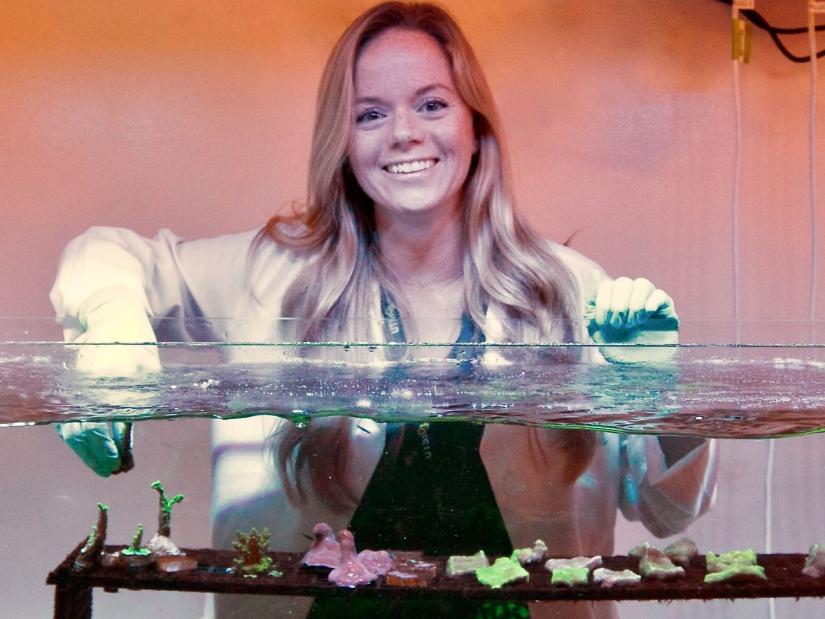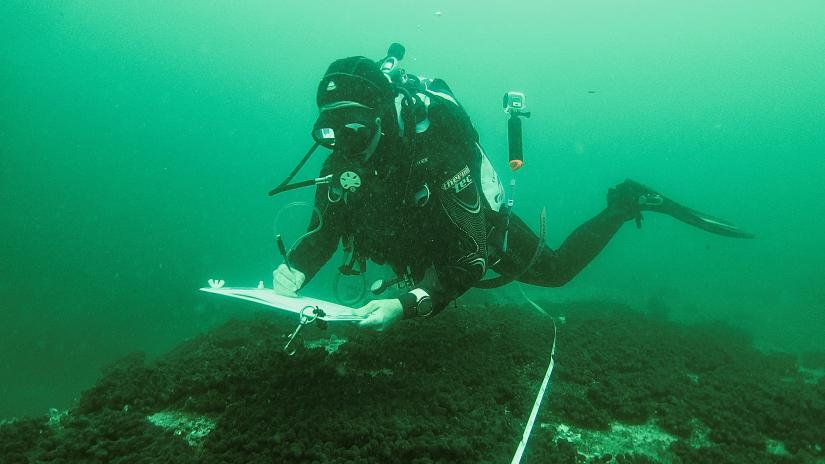UTS coral biologist Dr Jen Matthews wins 2023 NSW Young Tall Poppy Science Award in recognition of her work on coral nutrition.

Image: Supplied
What are your areas of expertise?
My primary objective is to unravel the mysterious realm of coral nutrition, delving into the intricate connections between corals and their symbiotic partners. Just like any living organism, corals require optimal nutrition for their health and survival, especially when faced with environmental challenges. I integrate tools and techniques from chemistry, forensics, ecology, and marine biology to identify the best nutrition for corals to thrive and survive. By understanding the delicate balance of their nutritional needs, I can contribute to the development of new tools for the conservation and restoration of these magnificent and indispensable ecosystems.
What research are you working on currently?
I am continuing to expand our knowledge of coral nutrition, exploring what constitutes ‘optimal’ nutrition, and how life stages, environmental conditions, and resource availability impact this. I am exploring new possibilities for reef conservation, including new ways to diagnose stress, and rebuild degraded reefs through targeted nutrient supplements for corals in early life stages. I draw inspiration and techniques from nanotechnology, medicine, and network modelling to bring new insights to reef conservation efforts.
Why is it important?
Coral reefs are vibrant underwater cities, providing vital homes to thousands of marine creatures. While we might not live right next to one, we are all connected to reefs for coastal protection, food sources, and even new medicines. But climate change and pollution are causing the catastrophic loss of corals in our lifetime, and on our own doorstep; the iconic Great Barrier Reef has lost half of its corals in the last 20 years.
What inspired or prompted you to work in this field?
In 2009, during a diving trip in Thailand, I saw corals for the first time. Their vibrant colours – dazzling blues, fluorescent yellows, neon pinks, and bright whites – left me in awe. However, my excitement turned to concern when I learned that these breathtaking corals were actually dying, bleached by extreme sea temperatures.

Dr Jen Matthews surveys the health and spread of Sydney’s corals. Photo credit: Dr Brigitte Sommer.
What have been your key challenges and achievements?
Navigating academia is always challenging, especially during the early career stages. Yet, when you add to that the responsibilities of being a new mother, the upheaval of a global pandemic, and the mounting impact of extreme weather events on reefs, the road becomes even more demanding.
Despite this, I have designed microplastic removal tools for aquatic and wastewater systems, contributing to the crucial task of tackling pollution in our precious waters. I have had the privileged of receiving the Pure Ocean Innovation grant, enabling me to develop a coral “baby food” that significantly enhances the survival of corals in early life stages. Moreover, I have found immense joy in connecting with thousands of students, sharing my passion for coral reefs and my life as a marine biologist.
You have been recognised as a NSW Young Tall Poppy for 2023. What does that mean to you?
This award is truly a catalyst for me, propelling my outreach potential and forging valuable connections. I am very excited about the incredible opportunities it offers, particularly in terms of inspiring others and expanding my network. It grants me the platform and resources to reach out and engage with aspiring individuals, fostering a spirit of curiosity and ambition. I fundamentally believe that by fostering diversity and inclusion in STEMM, we can unlock untapped potential and drive progress that benefits us all. I aspire to be a role model, showing young women and girls that they, too, can excel in STEMM fields, breaking barriers and contributing to ground-breaking advancements.
What comes next?
I am looking forward to another busy coral spawning season later this year, including some exciting new approaches and collaborations that hold immense promise as active interventions on the Great Barrier Reef. I am especially excited about expanding my research on therapeutic nanotechnology, which has shown tremendous potential to revolutionise aquaculture, but has never been applied to reef systems.
We are at a critical juncture. The plight of coral reefs demands our immediate attention and calls for a collective commitment to finding and implementing effective measures that can make a difference in the fate of our reefs, and the countless species that depend on them.

